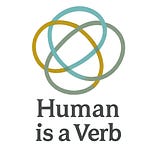What if a cookie could tell you everything you need to know about dignity? Not a fancy one. Just a flat, grey-brown cookie in a prison classroom, offered as a gesture of celebration… and received as something else entirely.
In this episode, we begin with a broken cookie and trace the quiet threads of how dignity lives between us, how it gets lost, and what it might take to find it again.
I had been looking forward to this day of being with the men in prison. After fifteen weeks of class together, today was celebration day, and maybe just as importantly, cookie day.
On the drive to the prison, I carried with me a cautious hope. Would there be cookies this time? How would the men react? Should I even eat one, or would it be better to let every cookie stay with them, a special treat rarely received?
I volunteer with Heart-to-Heart Inc., helping facilitate Nonviolent Communication classes at a local correctional facility. I have grown to appreciate this class and the work they have put in, not only in our sessions but while being locked up. They’ve practiced dignity. Connection. Truth-telling. They’ve gained skills I wish more people had on the outside, better ways to be human in a world that so often forgets how.
Today was supposed to be a celebration.
The table was set with a pot of coffee, a stack of white napkins, and a silver tray of cookies. Only they weren’t really cookies, at least not in the way you’d hope.
They were thin, grey-brown somethings. They looked like the cardboard drink coasters you get at Chili’s — do they still put those down when you arrive at your table? The surface puckered with air bubbles, for me, the telltale sign of missing baking soda.
Several of the men laughed half-heartedly. One suggested they were made from a cake mix. I think they were, and that the kitchen didn’t have all the ingredients.
Something dropped from my chest to my gut, that feeling when disbelief and disappointment meet. I just wished these guys, who had done such good work with us, could be celebrated with something we could be proud of. I wanted them to be treated with dignity. I wanted the system to show that it had dignity to offer.
And I was reminded again, dignity isn’t abstract. It’s not something we talk about in theory. It shows up, or it doesn’t, in moments like these. In what’s offered. In what’s withheld.
That cookie tray told a story. A micro story of a small gesture of dignity denied. But also a story that reflects back to us a bigger story that we are all living.
Most of us were taught to think of dignity as something we possess, something personal, interior, individual. But there’s another kind of dignity, one we don’t talk about enough. Communal dignity isn’t just what lives inside us, it’s what lives between us. It’s the space we make for each other. The tone of our voice. The seat we pull out. The effort we put in, or don’t.
When communal dignity is present, it’s felt. It doesn’t need to be announced. And when it’s missing, like in a forgotten cookie tray or a name never spoken, you feel the cold.
Those cookies weren’t just disappointing. They revealed something missing in the system that delivered them. A correctional facility that doesn’t invest in celebration or taste, even in small ways, is also failing to honor its own dignity.
And honestly? I felt it too. Something in me, and something between me and the men, felt diminished. That small gesture was supposed to honor them. But it also reflected the tone of care I was helping to create, the kind of leadership we were offering together.
Dignity is never a one-way exchange. It’s a mirror we hold up for each other. When we fail to offer it, we don’t just harm the other, we shrink something in ourselves.
So when that tray was set down, with its flat, forgotten cookies, it didn’t just signal a lack of ingredients. It revealed something deeper: a lack of attention, a thinning of care, a moment where the shared dignity between us had quietly collapsed.
We’re living through a time when the threads that hold us together are coming loose. Neighbors stop talking because they voted differently. Families go quiet around dinner tables because they can’t agree. Migrants are deported without due process. So many civil servants are losing their jobs without a process to say goodbye. Leaders lie, and we’ve stopped expecting them to tell the truth.
We’re tired. Disconnected. Suspicious. And what we’re losing isn’t just civility. It’s something deeper. We’re losing the atmosphere of shared dignity that makes life together possible.
In a time like this, when people are silenced, divided, or dismissed, dignity is not a luxury. It’s what holds us together.
And we don’t rebuild it with big gestures. We rebuild it with ordinary acts of care. Listening when we disagree. Telling the truth, even when it costs us something. Standing up for someone who’s been forgotten. Refusing to walk away from each other. Baking cookies for a celebration, and making sure you have the right ingredients.
These things aren’t soft. They’re the groundwork of a world we can live in.
Some say dignity is something we’re born with, a right we carry. And I agree: it starts there.
But dignity isn’t always honored. It has to be practiced. Protected. Made visible.
We don’t invent dignity. We extend it.
In Christian theology, even God isn’t solitary. God is relationship, a living communion of love. If we’re made in that image, then our humanity doesn’t reach its fullness in isolation. It takes shape in how we relate.
Dignity lives in the choices we make. To notice. To welcome. To speak truth and stay.
The men in that prison class knew that kind of dignity. Not in theory, but in how they showed up for each other.
We taught skills like empathy, deep listening, and nonjudgment, and research backs this up. Small acts of relational care can help restore dignity and reduce conflict, especially in places marked by control and trauma.
Maybe a cookie doesn’t seem like a big deal. But in a place where people are often forgotten, it means something.
Cookies aren’t frivolous. They say: I thought of you. I planned for you. You matter.
Because sometimes the unraveling doesn’t start with outrage. It starts with forgetting. Forgetting a name. A need. A gesture.
And when a culture forgets how to offer basic kindness, it’s not just low on flour. It’s running out of air.
I’ve felt that kind of suffocation, too. Not in prison, but in daily life. In rooms where no one made space. In moments where something real needed to be said, and wasn’t.
It’s easy to think of dignity as something we either have or don’t. But that’s not how it works.
Dignity is something we practice. Together.
Every time we choose curiosity over control, or truth over silence, or presence over dismissal, we build the kind of world where people can breathe.
In many Indigenous traditions, being human means standing with others, not above them, not alone. The Lakota say Mitakuye Oyasin, all my relations. In South Africa they say, Ubuntu, I am who I am because of who we are.
Dignity isn’t just what I carry inside. It’s what rises between us, like heat from an oven.
When someone’s dignity is honored, we all breathe easier. When it’s dismissed, something goes cold.
So maybe it starts with better cookies. Not fancy ones. Just real ones. Ones that say: we see you.
Maybe it starts with remembering someone’s name. Or pulling out another chair. Or asking a question and actually waiting for the answer.
These things aren’t extra. They’re how we survive each other. They’re how we become human — again and again.
Maybe it was never really about the cookies. Maybe it was always about the care we choose to bring.
Because dignity isn’t a thing we own. It’s something we build. One small act of attention at a time.








Share this post